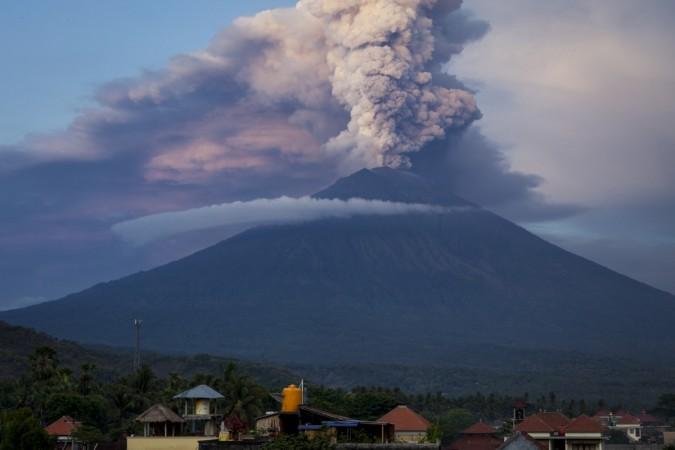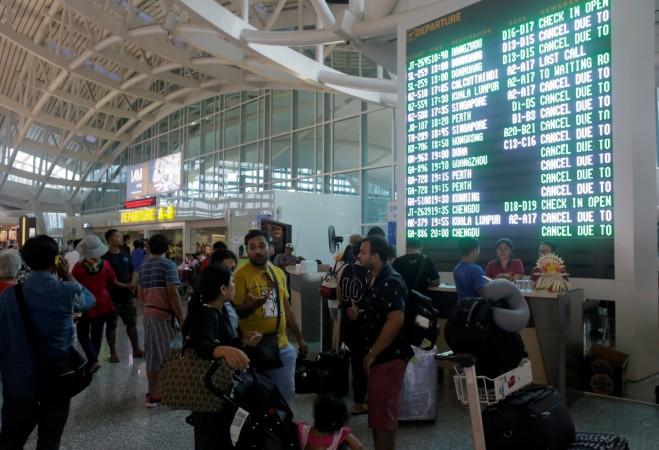Even though numerous residents of Bali in Indonesia have refused to leave their homes and move to safer locations and the Ngurah Rai International Airport too has been opened, experts have warned that the Mount Agung volcano may explode "within hours" and the situation is worrisome.
The volcano has been rumbling for a while now spewing ash and releasing massive amounts of smoke that can be seen billowing 9,800 feet above its cone, and senior Indonesian volcanologist Gede Swantika said that Mount Agung is now entering a critical phase, which may lead to a bigger eruption than expected.
"Maybe in hours, not days, because it's already erupting. We are just waiting for the big one," he told the Daily Telegraph, when asked about when the volcano was likely to erupt.

Despite Indonesian authorities raising the alert level to the highest, hundreds of residents are yet to evacuate and experts have been worried that they may not have much time to move to safety. "If it got much worse, it would be really hard to think of. You've got a huge population center, nearly a million people in Denpasar and surroundings, and it's very difficult to envision moving those people further away," the Daily Mail quoted Richard Arculus, a volcano expert at Australian National University, as saying.
"There are many examples in history where you have this kind of seismic buildup - steam ejections of a little bit of ash, growing eruptions of ash to a full-scale stratosphere-reaching column of ash, which can presage a major volcanic event."
People living in villages near the volcano revealed that the ash has spread far and wide covering even the walls of their homes. "Ash has covered my house on the floor, walls, banana trees outside, everywhere," Wayan Lanus who fled a village in Buana Giri with his family told the daily.

The Bali International Airport has now been opened, but over 1,00,000 tourists still remain stranded in the island nation as flight services remain lean. The authorities decided to reopen the airports as the wind is said to have changed direction and moving away from Bali. After this, the danger alert was also downgraded to "orange," which is one level lower than the most dangerous.
While the volcano has brought Bali to a standstill, the eruption may also end up cooling the planet as the ash particles and sulphur dioxide that is released into the air forms compounds that reflect the sunlight and bring down the temperature, the USGS explained. On the flipside, volcanic carbon dioxide, a greenhouse gas, could lead to higher global warming. The cooling effect depends on how large the eruption is and the amount of sulphur dioxide released into the stratosphere.
This has been noted from past eruptions, which have decreased the average temperature on the Earth surface by about half a degree (Fahrenheit). The eruption of Mount Pinatubo in the Philippines on June 15, 1991, is said to have cooled the Earth's surface by as much as 1.3 degrees Fahrenheit for about three years.

Similarly, the 1783-1784 Laki fissure eruption in Iceland released a large amount of sulphur dioxide, and the two eruptions brought down temperatures in North America and Europe.
It now remains to be seen if the Mount Agung's eruption will have a similar effect on the global climate.














